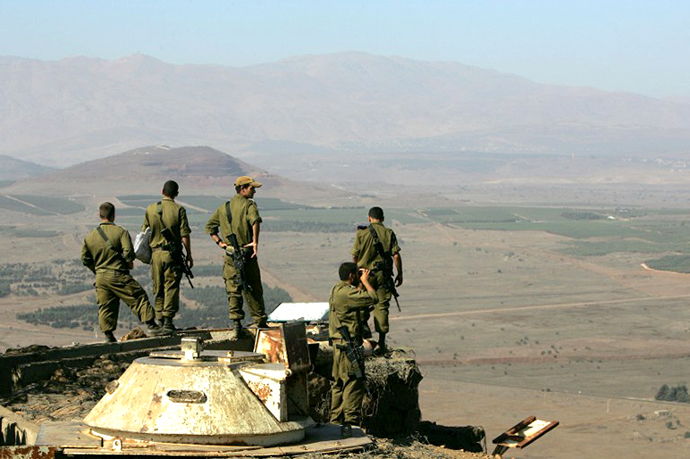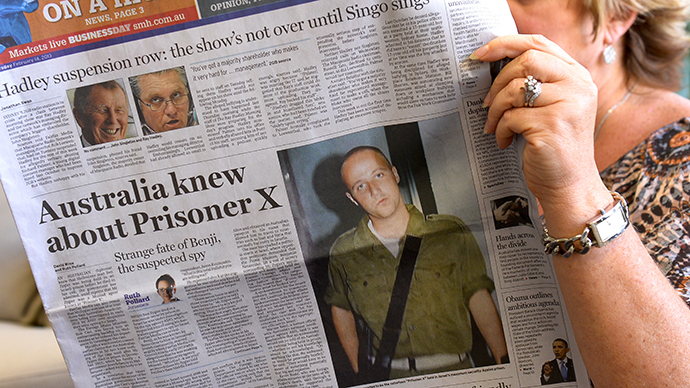‘Israel prefers US to do the job in Iran’
It would be more convenient for Israel if the US attacked Iran because they have the capacity to do so, journalist and author Yossi Melman told RT.
The Israeli intelligence expert argues that Tel Aviv’s possible strike on Iran is highly unlikely.
RT:How involved are Israeli spies inside Iran?
Yossi Melman: Iran is considered by the Israeli government and intelligence as the number one priority and therefore there is a lot of intelligence involved in order to get information. But when you say Israeli spies it doesn’t necessarily mean that Israel is recruiting and trying to send its own spies into Iran. There are other means of collecting information.
RT:Is Israel behind the assassination of Iranian scientists and also hacking the Iranian computer systems?
YM: I can’t reveal my sources but it’s our understanding that Israel was behind it. It’s based on some logic that it was a pattern identified with previous operations in other parts of the world. It’s part of the Mossad tradition in some rare cases to carry out its assassination attempts, and some other information which I don’t want to detail.
RT:The western world tried to use diplomacy to prevent North Korea from acquiring nuclear power, but it didn’t help. Do you think it’s the same situation with Iran?
YM: This is the point. Iran wants nuclear weapons for various reasons. They want to have hegemony in the region. Nuclear weapons in the hands of a country means national pride, scientific infrastructure, technological development. But also it gives the regime guarantees of survival. We see the North Korean example. They have developed nuclear weapons. They even tested it though unsuccessfully. But they know that if you have nuclear weapons no one is messing with you. This is the precedent, and Iran wants to repeat it. Diplomacy has failed with North Korea and is also failing with Iran.
RT:Do you think Israel is trying to maneuver the US to attack Iran?
YM: I wouldn’t use the word maneuver. Israel wants America to attack Iran as a last resort. If diplomacy fails, and it has failed so far, if the sanctions aren’t working. At the end of the day Iran wouldn’t cave in to the pressure and would assemble a bomb. In such a case Israel prefers the US to do the job not only because it’s more convenient. Above all the US has the capability to inflict a major blow on Iran’s nuclear sites, while Israel’s capabilities are very limited.
RT:What do you think was happening behind the scenes during President Obama’s recent visit to Israel? Who exactly was putting pressure on who vis-à-vis Iran?
YM: I think Obama simply asked Israel not to do anything not coordinated with Washington. In other words, not to attack Iran unless it is coordinated with the US.
RT:Could Israel carry out an attack without coordination?
YM: I don’t believe so. I wrote it in my book, I’ve been writing it in my newspaper articles. I don’t think Israel will attack Iran, because Israel’s capabilities are limited. We can do it, but the damage we can inflict upon Iran and its nuclear sites is very limited. The big question is the if the damage would be that low that Iran will be able to rebuild its nuclear sites in 12-18 months then I think it’s not worth taking the risk.

RT:What would be the difference between an Israeli strike on Iran today as opposed to the strikes Israel carried out on Syria in 2007 and on Iraq in 1980s.
YM: Huge difference. Syria was taken by surprise. There was one target. The distance was very short. Not much armament to be carried. Israel was confident that all its airplanes would return home safe. With Iran it’s the opposite. The distance is longer. Israel doesn’t have enough aircraft to carry out an effective attack on Iran. Iran would certainly retaliate and maybe drag Israel into a long conflict.
RT:At the same time when Israel carried out those strikes it was very quiet about the operation. As you say these were surprise operations. Now there is a lot of noise happening around the possible Israeli attacks on Iran. Could that suggest that the Israelis are concerned that they might not in fact be able to carry out a successful strike?
YM: That’s the argument. If you want to carry out an operation you don’t talk and especially at the level of the Israeli leaders. Netanyahu has been talking about it. That is one reason why I don’t think Israel would attack Iran.
RT:The former Mossad director Meir Dagan publicly said that he was against a strike on Iran. What was he offering instead?
YM: They said there should be a more covert operation to try to slow down Iranian nuclear sites, but above all Israel has to coordinate such operations with the US and the international community. Israel shouldn’t take the lead in the Iranian case. Dagan’s argument is, if Israel attacks Iran the damage will be limited, Iran will be able to rebuild its nuclear capacity and will use this attack as a justification for building nuclear sites. They would have said: ‘You see, we need nuclear weapons because we were attacked’.
RT:When you wrote a book did you have any censorship problems? You don’t talk too much about Kidon, the Mossad unit that was allegedly in charge of overseas operations. Why not?
YM: Well, the book was written by two of us – by me and an American journalist. My chapters were censored because any Israeli is obliged to do it, while my co-author didn’t have to. But I think we have this is the book. We are very proud of a chapter talking about the Kidon unit, which is the spearhead of Mossad special operations.
RT:Does Mossad get away with some of the operations because of these Israeli censorship laws?
YM: No, it has nothing to do with it. If Mossad is conducting an operation abroad and it is revealed outside Israel the censorship doesn’t work. The international media can write about Mossad overseas operations as long as they are informed. On the other hand the Israeli media is subjected to this censorship. I have said many times that it should be lifted.

RT:The Israeli journalist sometimes have to rely on foreign reports to quote on what is happening inside Israel. Do you think that the Prisoner X incident brought to the fore the shortcomings of the censorship laws in this country?
YM: Absolutely. The example of Prisoner X, the Australian who was recruited by Mossad, was arrested for betraying the country, and committed suicide, shows how the censorship is working. Don’t forget about the gag order, because of which we journalists cannot write about some issues. I tried to fight a gag order when Prisoner X was still alive, I went to the courts, and I lost the case. I was kicked out by the judges, who said that the ruling would remain intact. But it showed the failure of the system, because the only ones who didn’t know anything about the Prisoner X were the Israeli public.
RT:Does that mean that there are other people who could be locked up?
YM: One of the damages the Prisoner X case did to Israel is that it worsened its image as a free democratic society.
RT:Is there a trust in the relationship between the Israeli and American intelligence?
YM: We exchange information and assessments. Sometimes we hold joint operations with the Americans. But obviously the trust is not 100 percent. There is always a kind of mistrust because you don’t share even with your best friend everything you possess.
RT:Have the Israeli enemies ever managed to plant agents within the Israeli government?
YM: The answer is yes. Our history has a lot of such cases. All-in-all these are rare cases because the general trend is that Israeli society is difficult to penetrate due to a great sense of patriotism in the country. It’s a very homogenous society. Israel is more difficult to crack than other countries.
The statements, views and opinions expressed in this column are solely those of the author and do not necessarily represent those of RT.












